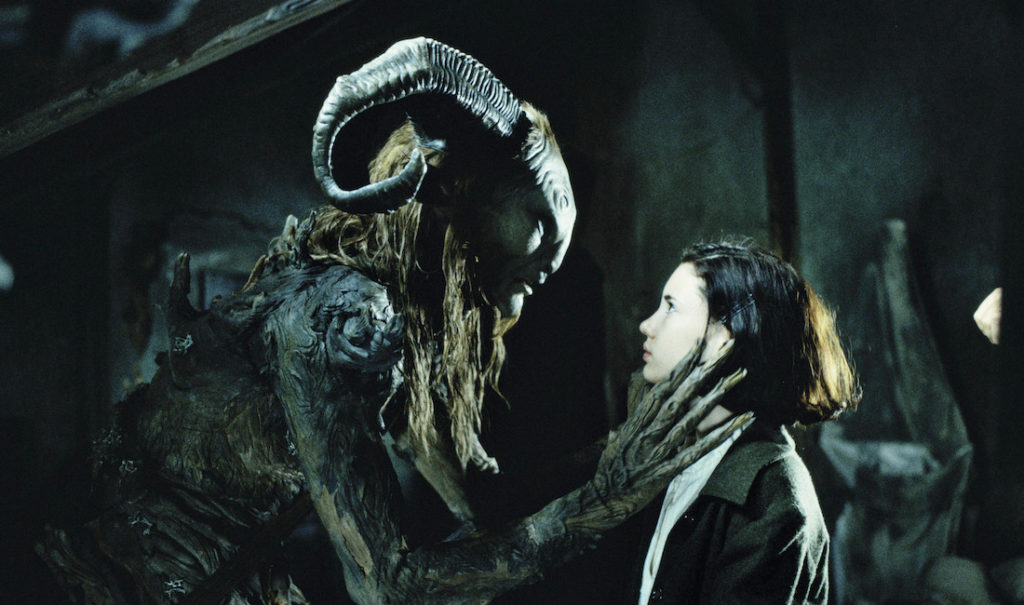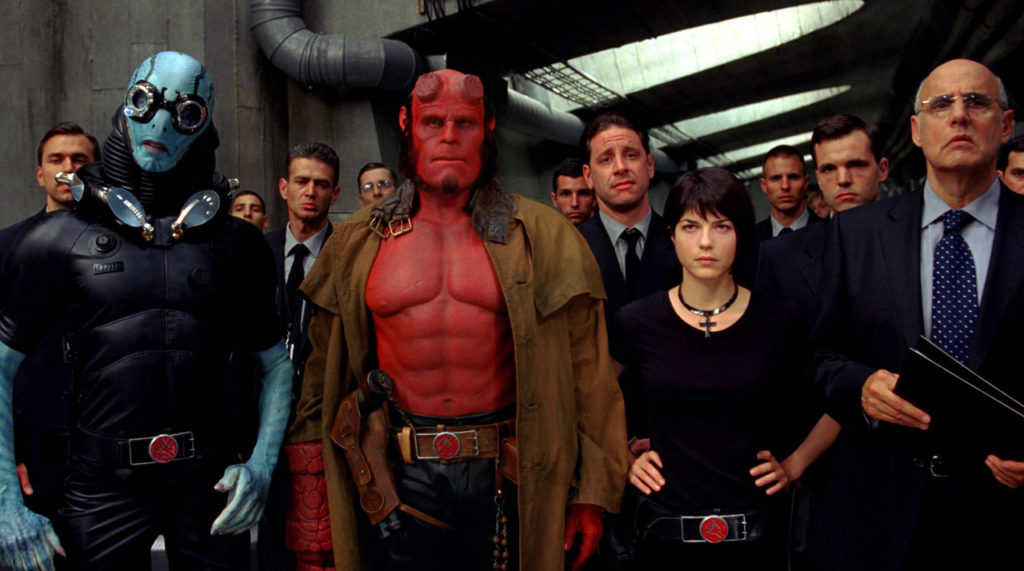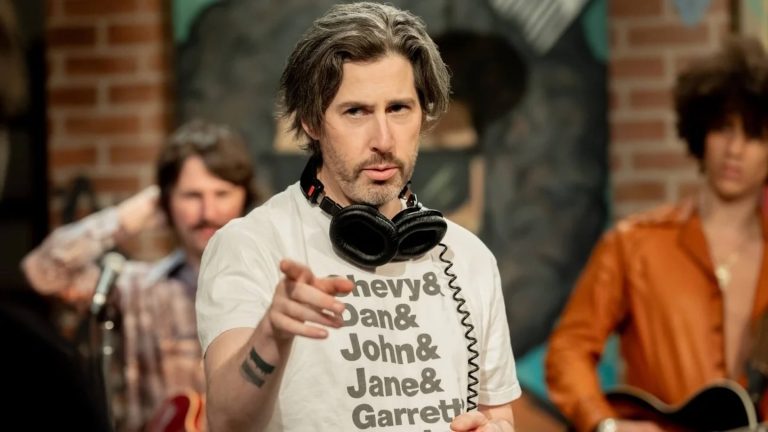10 Tips on Storytelling From Oscar-Winner Guillermo del Toro

Guillermo del Toro is an Oscar-winning filmmaker who digs deep into the human psyche to tell cinematic stories with unlikely heroes that exist on the fringes of society. They all battle monsters – both real and imagined – and express a shared humanity.
Having grown up in Mexico in a deeply Catholic family, horror stories captured del Toro’s imagination as a child and as a result, his point of view is like no other filmmaker working today. He’s not shy about discussing the challenges he’s faced in his career or how he manages to continue telling uplifting, hopeful stories, so we’re featuring a video from AlterCine that compiles a bunch of his advice that all writers will hopefully find inspiring. Here are 10 tips on storytelling from Guillermo del Toro.
Embrace the Monsters
Monsters are a recurring theme in Guillermo del Toro’s films because we all deal with monsters in our lives. While some are literal and most are figurative, at some point we must all face the thing that frightens us the most. Every once in a while, the monster is within us.
“I love monsters. If I go to a church, I’m more interested in the gargoyles than the saints. I really don’t care much about the idea of normal – that’s very abstract to me. I think that perfection is practically unattainable but imperfection is right at hand. So that’s why I love monsters: because they represent a side of us we should actually embrace and celebrate.”
Love the monster, villain, or dark force within your own story. Give it power. Give it humanity. Give it a weakness. As a writer, creating a terrifying monster is a powerful storytelling tool.
The Obstacle is the Path
Making a story work can be insanely challenging. There always seems to be an insurmountable obstacle in the way. But what if facing that obstacle head-on was the only way to tell that story?
Despite all his accomplishments, Guillermo del Toro also struggles with obstacles. He said:
“No matter who you are, directing is the art of orchestrating accidents. Of course, you prepare, color code, and design the movie to a T…but every day, you’re going to get 30 curveballs. Take what is there and make it work. There’s a great Zen saying, ‘The obstacle is the path…' — whatever you see as the obstacle – [it] is yelling at you. This is the way to a better solution.”
As a writer, don’t avoid the thing that makes you uncomfortable or that part of the story you hate. Instead, attack it, embrace it, and worship it. Let it inform your story in as many ways as you can discover. You will likely find it is the best road to getting to the end.

'The Shape of Water' (2017)
Toughness and Vulnerability are Two Sides of the Same Coin
Choosing to tell a powerful story is like taking to the battlefield. You’ll need weaponry, armor, and courage. But any great soldier is more than those things. They are also believers that what they are fighting for is the moral and just thing to do. The ability to believe in something greater than yourself can make you vulnerable – and that’s a good thing. Del Toro recommends you be tough as nails while still being as permeable as possible.
“You can’t be completely fragile because you won’t make movies. Become a painter or a poet. You have to be a tough mother***er and fight, tell the bastards, ‘No, no, no!’ You can be screaming at the producer for the crane not being ready and the next moment, you need to be completely open with your actor to watch the actor perform. You have to preserve that childlike imagination.”
As writers, we must fight for our story. We must be bold and fearless while allowing that inner child to live inside us. It’s that child’s perspective that makes the story accessible and relatable.
Express Your Unique Voice
As writers, our most important tool is our own unique perspective, experience, and point of view. It’s the one thing no one else has and we must express it to the fullest potential if we want to create something fresh and distinctive.
Del Toro said:
“All we can do as artists is a synthesis of what’s been done before. 2000 years into civilization, every song has been sung, every story has been told, but your voice hasn’t been heard. Your qualities and your defects. Nobody has organized those shiny bits the way you do – that’s voice.”
The story of Romeo and Juliet existed before Shakespeare told it and it still continues to be retold. As you sit down to create a story, think about what your personal life experience can add to it.

'Pan's Labyrinth' (2006)
Do Not Get Wrapped Up in the Industry Side of Writing
There are a lot of “rules” in Hollywood. If writers followed all of them, they’d simply write the same movie over and over. Follow your gut, your heart, and your instinct. Don’t worry about anything else.
Del Toro said:
“You could be listening to an agent or the head of a studio – they know the grosses, who’s doing this or that. It’s absolutely not important. The only thing [that’s important] is that tradition you are going to belong to.”
Just write the best damn script you know how to write.
Don’t Like the Movies You See? Write Better Ones
It’s easy to complain about the poor state of cinema these days. The harder thing to do is make better movies. But that’s exactly what Guillermo del Toro says you should do.
“It’s always better to answer in your work the things you don’t like in the media. If you dislike the movies that are being made, make your own. Show the world what you think this medium should be.”
If writers are anything, it’s resourceful. If you believe you can do better, you will.

'Crimson Peak' (2015)
Only Write Stories You NEED to Write
If you’re a truly creative person, you probably think of new story ideas every day. Some fall by the wayside, but some stick with you. Maybe for years. Some nag and won’t shut up. Some dig their hooks into you and won’t let go. Those are the stories you NEED to tell.
Del Toro says he only makes films when he has “complete certainty” or an “unwavering belief” that he must make it, saying:
“It wavers at the end after you go through hell – but you have the certainty: I must make this movie! It’s not ego. You don’t want it to be liked or accepted, you just need to make it.”
Be True to Yourself
Because filmmaking is a truly collaborative art form, compromise will always be necessary. Just be mindful of what it is you are willing to give up for the greater good of the film. Del Toro says:
“If you are true to yourself, if you only do things you really believe in, that are personal to you, then you don’t need the approval of anyone else. That’s what, in my opinion, distinguished the great horror filmmakers and the great filmmakers in general. Don’t try to be someone else. I have never made a movie that I wouldn’t die for.”

'Hellboy' (2004)
Don’t Hold onto the Past
Sometimes a movie doesn’t turn out the way you hoped it would. Sometimes a script gets rejected 101 times. Know when to cut your losses and move forward. Rebirth and reinvention are powerful forces for all creative people — especially writers. If you feel stuck or weighed down, try a new genre or a new medium... get a writing partner. Don’t stop writing, just come at it from a different angle.
“The butterfly does not look back upon its caterpillar self, either fondly or wistfully. It simply flies on.”
Be the butterfly.
Never Lose Hope
Success isn’t so much about all the great things you accomplish – it’s about failing, too. Del Toro said:
“Never lose hope. The business…is going to be brutal. It’s going to be horrible. It’s going to be merciless and if you break you shouldn’t be making movies. You live with rejection for decades. That’s how I define success — failing on your own terms. For first-time filmmakers, I always tell them making a movie is eating a sandwich of sh*t. The only thing that gets better is that — as the years go by — you get a little more bread, but the shit is always there.”
---
There's so much to learn from Guillermo del Toro, but perhaps the most inspiring aspect of his approach to filmmaking is his willingness and enthusiasm to take big creative risks. Think about it — his groundbreaking film The Shape of Water is an adult fairy tale about an interspecies romance. But taking big risks means knowing how to fail, and Guillermo del Toro just knows how to fail better.
Get Our Screenwriting Newsletter!
Get weekly writing inspiration delivered to your inbox - including industry news, popular articles, and more!




























